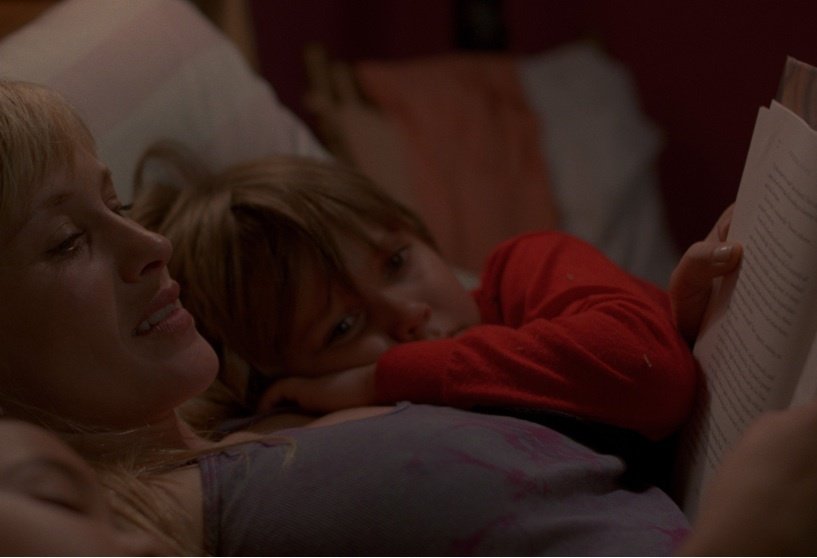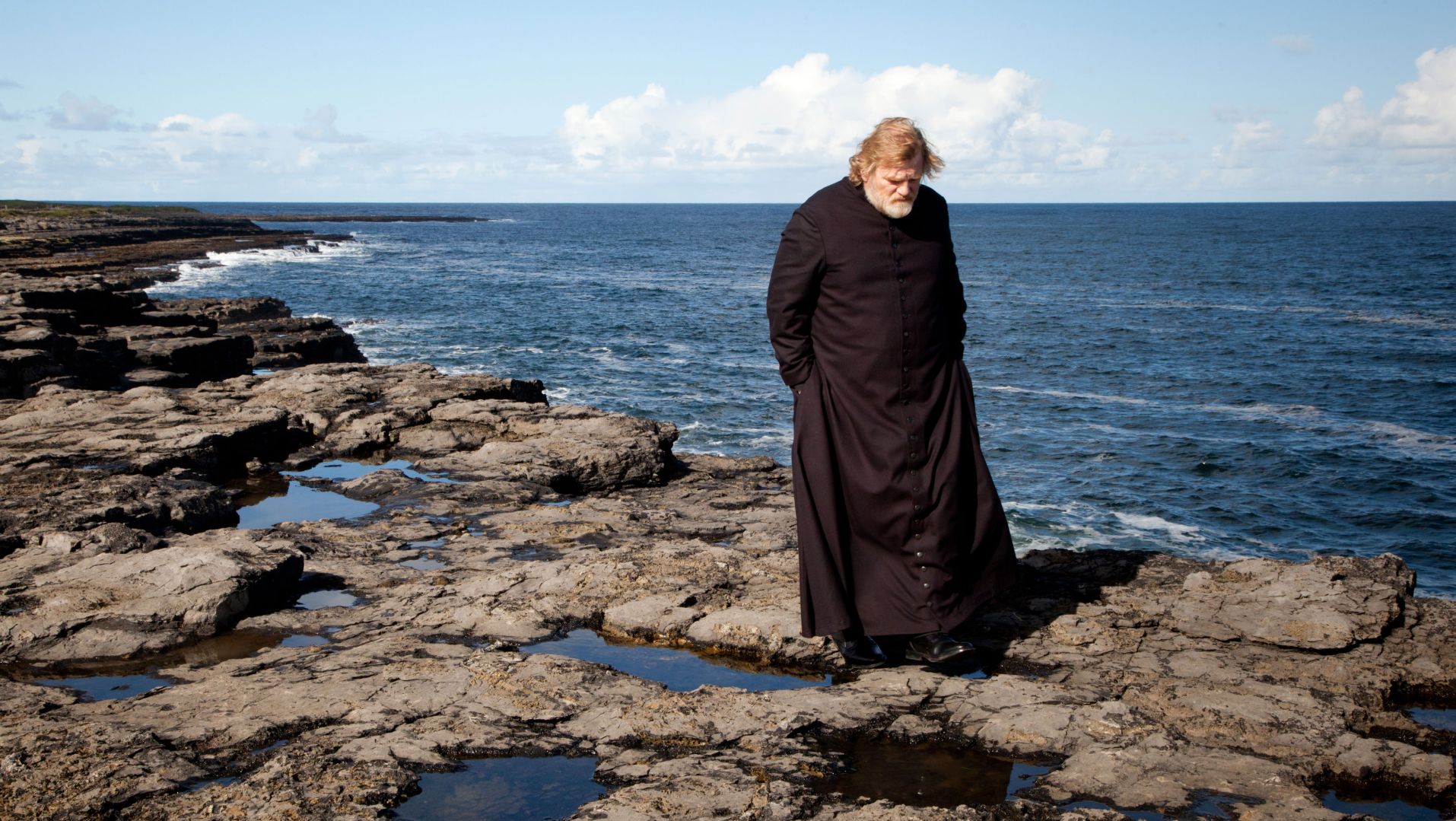I don't write these types of reviews too often, but this is one of them, so, heads up: come December Richard Linklater's Boyhood will still definitely be one of my favorite films of 2014, and maybe of the decade.
You need to know this about Boyhood going in: the star, Ellar Coltrane, was cast in the film in 2002 when he was six years old, and he—along with co-stars Patricia Arquette, Ethan Hawke, and Linklater's daughter Lorelei—proceeded to shoot the film periodically over the next twelve years, the characters' ages keeping pace roughly with the actors' real ages.
Just stop for a second and think about that: this film was in production for twelve years.

Though people knew about the project, the cast and crew kept the details pretty quiet. (For instance, here's one of the few, typical statements about the film.) So when the movie—a late addition to the slate at the Sundance Film Festival earlier this year—was finally screened for an audience, people's minds understandably exploded. This is epically patient filmmaking. It's not something we ever get to see.
Boyhood isn't a documentary, though you might be excused for mistaking it for one (not least because it's been compared to Michael Apted's Up series). It's the same sort of fictional narrative feature film you and I are used to watching, though there isn't a typical plot. In the film's story, a boy named Mason (Coltrane) grows up. He and his sister Samantha (Lorelei Linklater) live with their mother (Arquette, whose character's name is simply "Mom"). Mom and Dad (Hawke) got divorced before the movie started.
Both parents date other people and sometimes marry them. They get jobs and lose them. Mason goes to school and fights with his sister. He moves houses and has to make new friends. He gets into fistfights. He rides his bike. He watches Star Wars. He gets older. And eventually, he graduates from high school and goes to college.
That's all very typical stuff—a childhood that will remind a lot of viewers of their own: sometimes idyllic, sometimes tumultuous, sometimes confusing. We mostly see things from Mason's perspective, which means he is sometimes more preoccupied with and aware of whatever is going on in his personal existence than with the bigger, more serious issues that the adults are dealing with. And some of them are pretty serious, like spousal abuse and alcoholism and not knowing where money is going to come from. But the film stays lighthearted; things, after all, eventually seem to turn out okay. Life has a way of going on. We have a way of becoming who we will be.

One of the loveliest things about Boyhood is how much of it makes those long-forgotten strings of childhood vibrate within you. It reminds you of what it was like to be a kid. Friends (and step-siblings) float in and out of Mason's life; remember when you were best friends with the kids on your block, and then you moved and that was it—you never really saw them again? If you'd forgotten what that was like, you'll remember it, along with long afternoons of boredom, frustration with rules that seem dumb, and the elation of being out on your own with your friends at night. Mix that kind of nostalgia with a now-adult perspective, and it takes on a new dimension.
Admittedly, some of the minor actors (especially some of the children and teenagers) aren't great. But the principal performers are wonderful, and the filmmaking transforms it into something special, something different.
Typically, a film will shoot for an intensive period of weeks or months, all at once, so the cast and crew can move on to the next job. Nearly all films are shot out of order—you might shoot your last scene before your first, if the schedule works out that way. And if you to portray the same character at very different ages, you have a few choices: can do it with makeup (often with very creepy results), with CGI (think Benjamin Button, I guess), or with different actors altogether (my favorite being Kirsten Dunst and Samantha Mathis in the 1994 Little Women).
But because of the way Boyhood was shot, the same actors portray the same characters throughout the entire film. So we see them grow up and grow older as we're watching the characters grow up. We watch children go through their awkward stages as they become teenagers and then young adults. Music plays a big part in this film, but when you remember it's just the music that was actually on the radio when they shot the scene, it feels less like planned, mannered set dressing and more like actual life.

Richard Linklater likes to mess with time. His work includes movies as diverse as Slacker, A Scanner Darkly, and School of Rock, but he's perhaps best known lately for the "Before" trilogy—Before Sunrise, Before Sunset, and Before Midnight. Those films, we discovered when Midnight was released last year, were all shot nine years apart and portray the relationship of two people (played by Hawke and Julie Delpy) in, yes, nine-year-apart installments. The films remind you what it's like to fall in love, to have conversations that seem to last a lifetime, to weather the difficulties of relationship, and to wonder whether relationships are even worth the trouble. (Read Ken Morefield's excellent take on the trilogy from last year.)
Boyhood, too, is interested in how relationships evolve over time: in this case, parents and siblings, step-siblings and cousins. Our relationships to each other in families don't stay the same over the course of our lives. Siblings start as our playmates, then our rivals, and eventually become our friends. Parents go from being protectors to, sometimes, needing to be protected—or they do some growing up of their own. And of course, we rarely notice ourselves changing. But imagine: what if you could watch yourself growing up on screen?
Boyhood is a long film at 164 minutes. Nothing explodes. There's no villain, no superhero, no mystery to be solved. But it's compelling, enjoyable, heartbreaking, and, ultimately—well, I hate using the word, but it's inspiring. Leaving the theater, I felt like I needed to pay closer attention to my own life—to stop and just be.

So often at the movies, we see stories that teach us that only the remarkable moments are worth telling. Boyhood is an achievement in filmmaking, and it also does an important, countercultural thing: it reminds us that in the banal moments, the mundane relationships, the ugly rooms and the awkward phases—that is where we live out our lives.
Caveat Spectator
Boyhood is rated R for reasons that will be familiar to anyone who had a typical American boyhood (or, potentially, girlhood): language, including sexual references, and teen drug and alcohol use. However, these are both highly realistic for the material, and far less graphic than things you can see in the typical multiplex in a PG-13 movie on any given weekend (or on network or cable TV).
In some scenes, teenage boys swear and make lewd comments about girls and look (briefly) at porn they found stashed in the house. Drug use is largely limited to pot-smoking, and it is tolerated, though not encouraged, as is the underage drinking. Children talk back to parents. Probably more worth mentioning, and perhaps more deserving of the MPAA's rating, is the actions of some of the adults; Mason's mother seems to pick men with problems, and one is an abusive alcoholic. Others are also unkind.
Alissa Wilkinson is Christianity Today's chief film critic and assistant professor of English and humanities at The King's College in New York City. She tweets @alissamarie.















